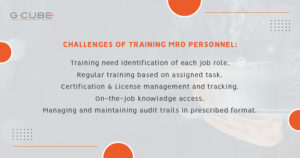Most of our case studies related to training extended workforce and their success, show that they have got two things right:
- Identifying the difference between their KRAs and their KPIs
- Enabling and empowering their extended workforce to achieve KPIs
Companies understood the value of training their frontline staff eons ago and have been undertaking the cost of this training with gusto. However, there are many different roles, each role has different KPI’s and almost all roles require extremely different skillsets. Therefor the training journey, different employees go through, needs to be highly personalized.

We realized that by charting the KPIs for each role type and then working them backwards from there, the training path can be identified for each employee, specific to their role and career path. Using a Learning Management System designed specifically to deliver these trainings have proven to be consistent and effective.
Operation Staff – Their need is to understand the why and how of their KPI metrics around productivity and efficiency. A good approach here is to train them on not just how to achieve their KPIs but to explain to them the importance of the KPIs, how they impact overall business and tying it back to how it impacts the employee’s personal life and career goals. Using LMS content that covers these points, and trains them on the softer KPIs of customer experience, transparency, and empathy will improve business goals like customer retention, repeat customers, customer loyalty, etc.
Customer Service Representatives – Identifying different scenarios for customer outreach and then training CSRs on the different ways that each scenario can playout, helps them to achieve their KPIs around AHT for different call types, customer experience, complaint handling/resolution, and even sales enquiry to conversion. Simulation based interactive training programs play a critical role in these employees being able to achieve their own KPIs and lay the groundwork for other teams to achieve theirs.
Sales Team – The basic rules of selling are the same across industries, but each industry has its nuances and the need is to train them accordingly. In order to be more effective, the Sales Team training needs to cover the details about the product they are selling along with industry analysis on buyer demography. Their performance is directly related to their ability to convince a customer to finally make the purchase. A crash course on buyer personas and psyche thus helps the sales team in improving their sales to conversion ratios, since there is always an emotional or logical motivation for buyers. Having an intelligent LMS that delivers interactive sessions, which are like simulated sales scenarios works beautifully.
There are many other roles within an extended workforce that are critical but not customer facing. For them, the training needs to demonstrate their importance and impact on overall operations. Understanding and achieving KPIs are steps taken in the right direction to achieve KRAs.
We at GCube, have 20 years of experience and 80+ industry awards in learning technologies; and would love to hear your thoughts, queries, and suggestions. Please do write to us.












